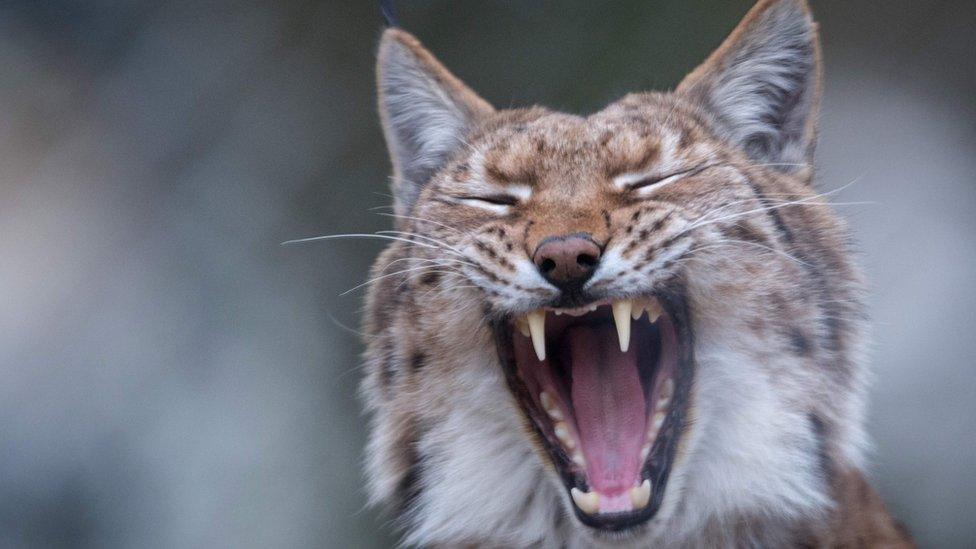Northumberland lynx trial: New bid to introduce cats to forest
- Published
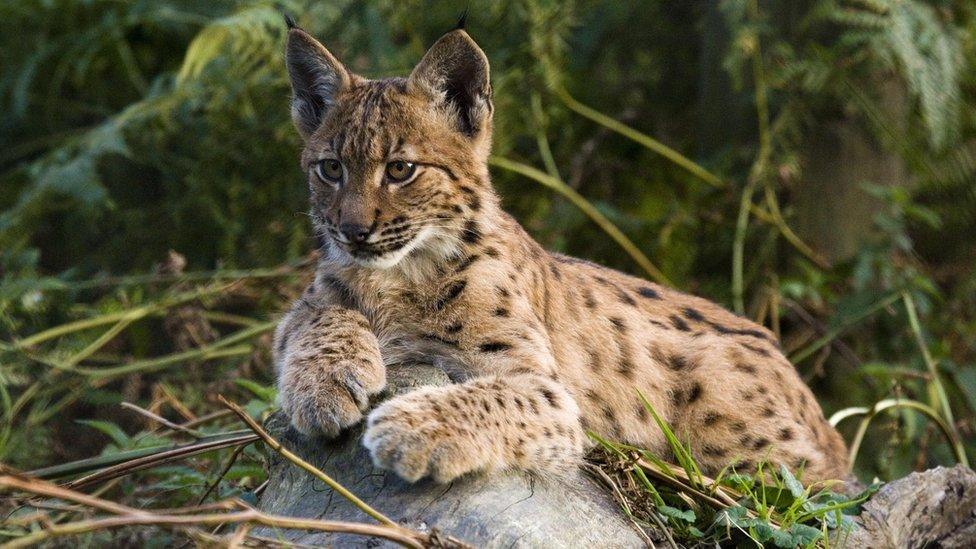
The Lynx UK Trust said the animals would eat deer which were "decimating" forests and upsetting ecosystems
A second bid to introduce lynx to a Northumberland forest is to be made two years after it was rejected.
The Lynx UK Trust had wanted to release Eurasian wildcats into Kielder Forest but the government rejected the plan saying it lacked "depth".
The trust said it had addressed shortfalls in its bid which aims to save Kielder being "overrun" with deer.
However, the National Sheep Association (NSA) said lynx would prey on "easy meals" such as sheep and red squirrels.
Lynx became extinct in the UK in about AD700 because they were hunted for their fur.
The original application was submitted to conservation agency Natural England which was then asked to provide advice to the Department for Environment, Food and Rural Affairs (Defra).
The then Environment Secretary Michael Gove said the body had concluded the plan "lacked necessary depth and rigour", external.
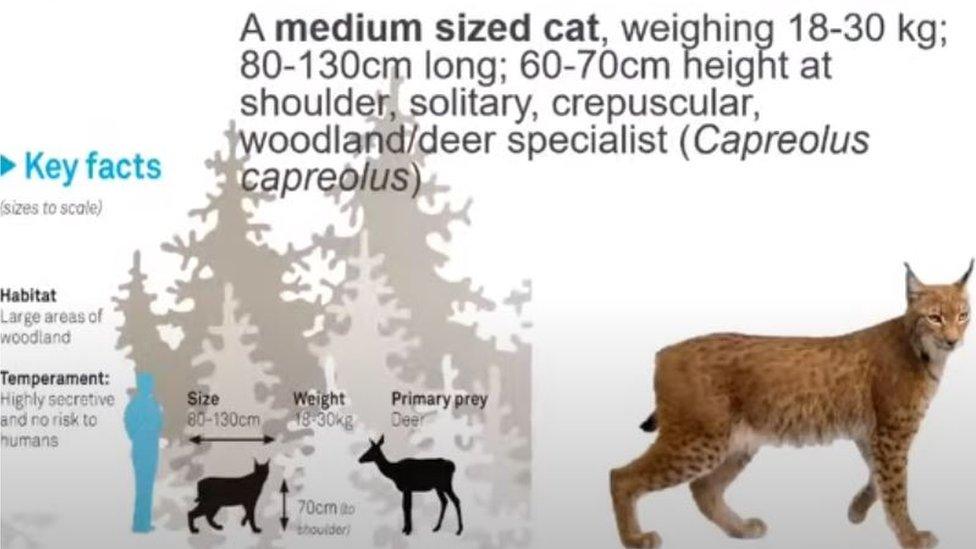
The Lynx UK Trust said the animal was not a big cat and similar in size to a "skinny Labrador"
Supporters of the project believe it will control deer numbers, reduce damage to the forest and provide eco-tourism opportunities.
Since the first plan was rejected the trust said it had carried "extensive" work and had commissioned a habitat risk assessment.
Dominic Woodfield, of ecological consultancy agency Bioscan UK, concluded that the lynx were unlikely to wander from their designated site because it was so large and had everything they needed, but if they did there was no "credible risk" to bird species such as hen harriers.
The lynx trust said it had also consulted local people more widely through information events in village halls, as well as meetings with local farmers and businesses prior to lockdown.
Director of the Lynx UK Trust Dr Paul O'Donoghue also held a question and answer online public consultation, external and said he believes tourist numbers would be boosted at a time when they were "needed more than ever" .
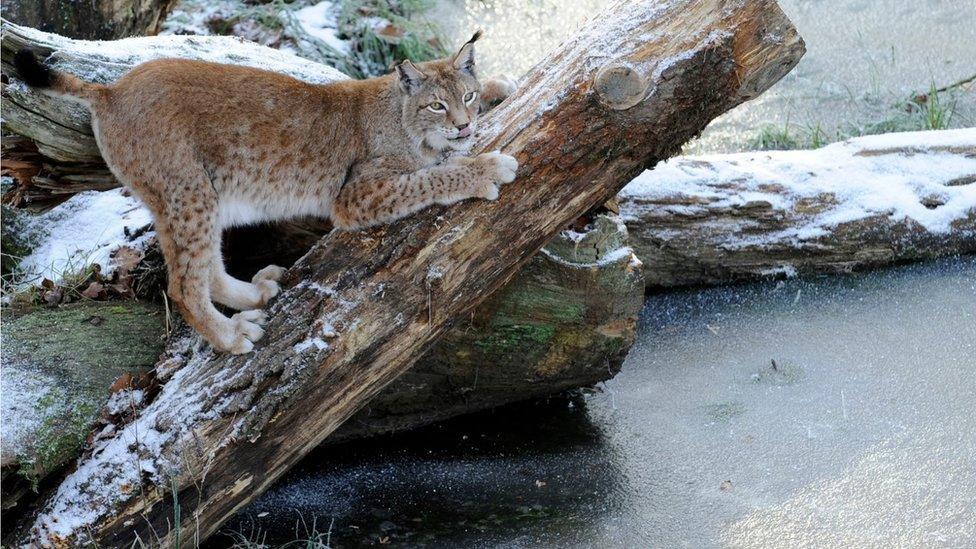
Chief executive of the NSA Phil Stocker said three lynx would not impact deer numbers
The original plan for five animals has also been scaled back to three, a male and two females, who would be tracked at all times in an area of 700 sq km.
Mr O'Donoghue said: "We want a licence to conduct a highly regulated trial.
"It is fully reversible - the lynx can be captured at any time although we do not think this will be necessary. There have been no reported attacks of lynx on humans anywhere in the world.
"I'm not saying that lynx are the silver bullet but they will certainly help restore ecosystems.
"Deer numbers are 50% higher than they should be and they are decimating and eating their way through our forests."
He added that lynx were medium-sized cats, similar in size to a "skinny Labrador", and in some parts of Europe they were called "ghost cats" because they were rarely seen.
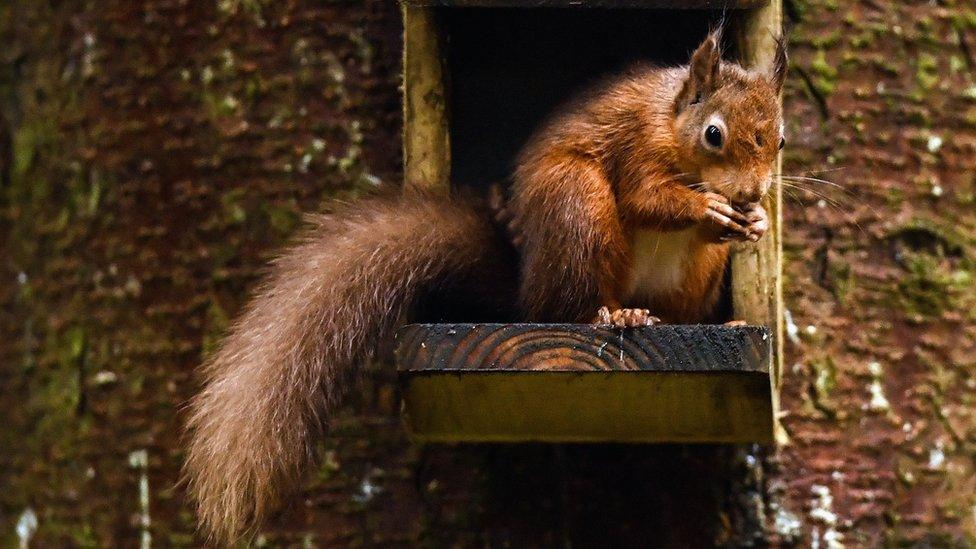
The NSA said lynx would prey on easy meals such as red squirrel
Chief executive of the NSA, Phil Stocker said three lynx would not impact deer numbers.
He said: "We know, talking to other farmers, in Europe they can go rogue.
"They are opportunistic hunters eating sheep and nesting birds - an easy meal.
"Is it fair to consciously introduce an animal we know will tear apart livestock?
"Lynx are not part of the UK ecosystem. Also the plan is not ecologically sustainable, with only three the gene pool is compromised. There will be in-breeding."
The lynx trust as part of its licence it would have to compensate farmers for a "handful of losses."
- Published17 August 2020
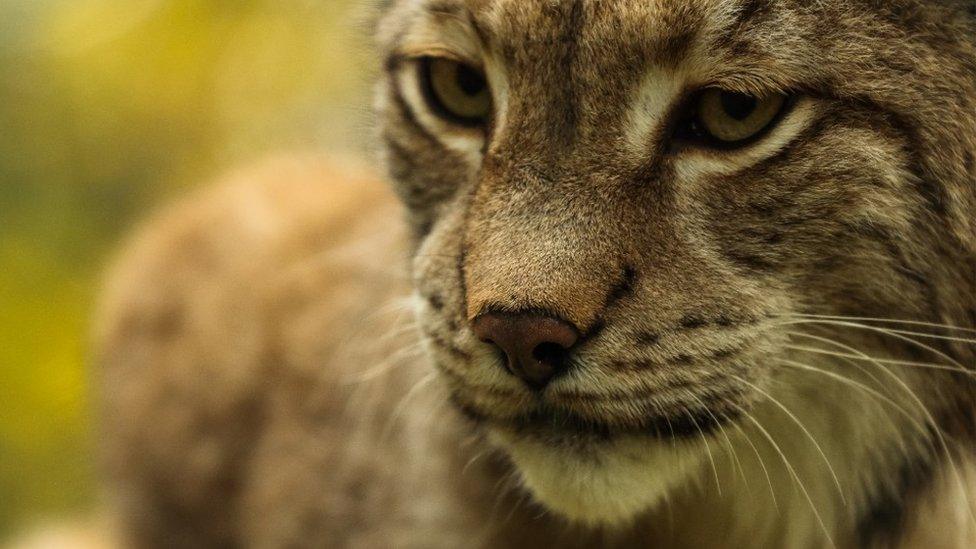
- Published4 December 2018
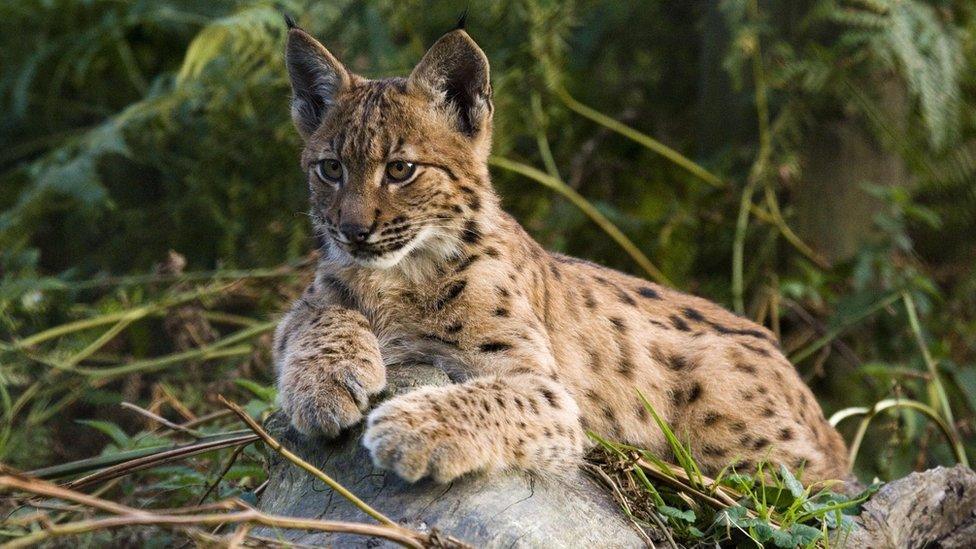
- Published9 August 2018
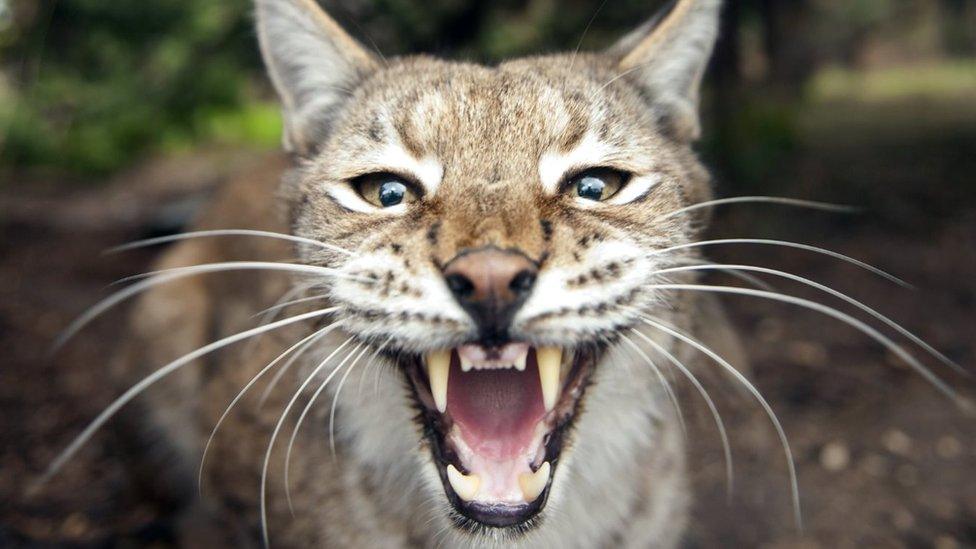
- Published17 July 2017
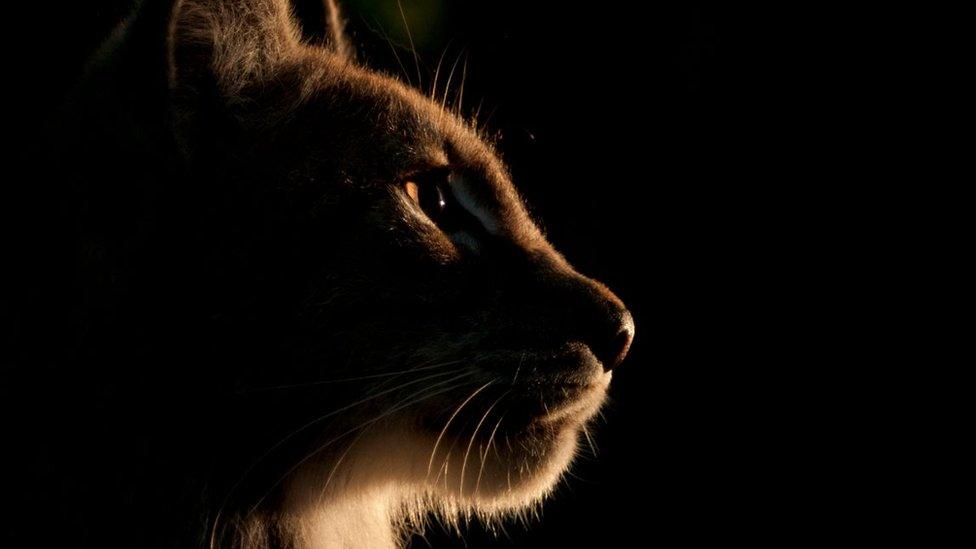
- Published26 September 2016
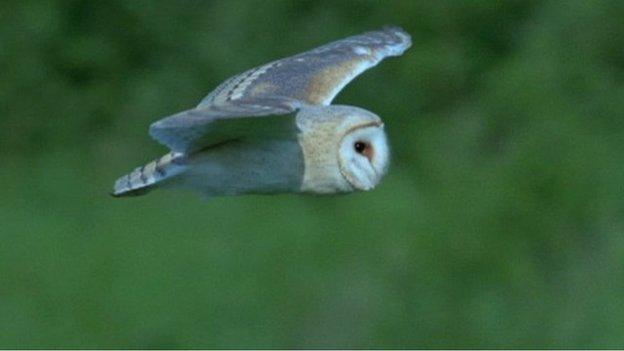
- Published21 September 2016
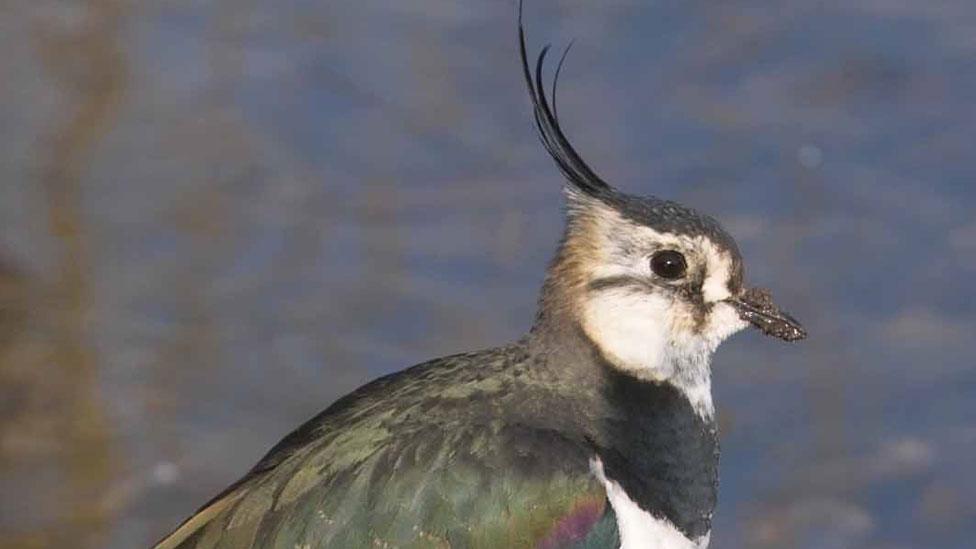
- Published9 April 2016
